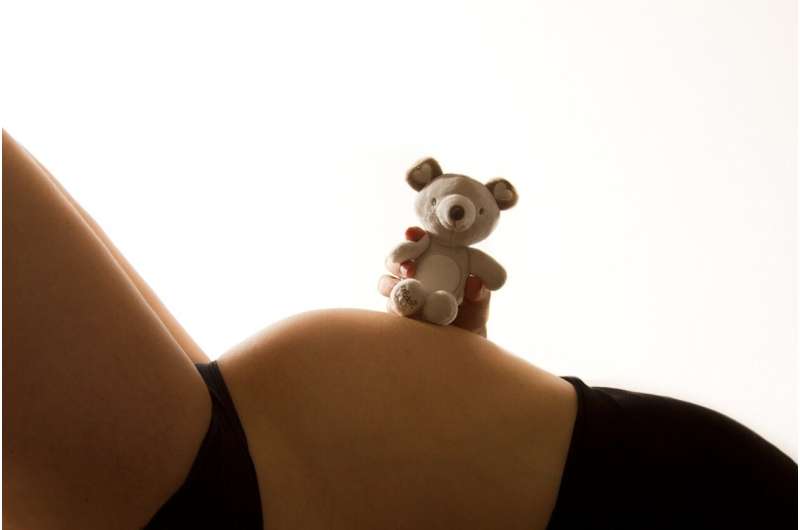This article has been reviewed according to Science X's editorial process and policies. Editors have highlighted the following attributes while ensuring the content's credibility:
fact-checked
peer-reviewed publication
trusted source
proofread
Addressing maternal prenatal depression can lead to longer gestation, researchers say

A cohort of researchers lead by the University of Colorado Anschutz Medical Campus and the University of Denver are emphasizing the importance of maternal prenatal mental health, suggesting prenatal depression intervention can lead to longer gestation, healthier babies and intergenerational benefits.
A collaborative study, published in the journal eClinicalMedicine, highlights the breadth of existing research underscoring the impact shortened gestational periods have on the health of the newborn, identifying maternal prenatal depression as a link to early birth. Despite the magnitude of evidence, researchers say there is a lack of progress in reducing rates of early delivery.
"Prenatal maternal depression rates are higher than postpartum depression rates, but are not as targeted despite well-documented impact it can have on gestation length," says Elysia Davis, Ph.D., associate adjoint professor of psychiatry at the University of Colorado School of Medicine, distinguished professor at the University of Denver and first author. "The prenatal care necessary for pregnant individuals provides a window of opportunity to address mental health concerns by requiring routine visits with their provider, when they may not otherwise interact with the health care system."
The study involves a random clinical trial in which 226 pregnant individuals received either enhanced usual care or interpersonal psychotherapy during routine prenatal care appointments. Results indicate that participants reported a reduction in depression and were more likely to experience longer gestation.
"What this suggests is that by reducing the mother's depression during pregnancy, we can increase the rate of babies born full term, ultimately impacting morbidity and mortality rates among newborns," says Davis.
"These findings really provide proof of concept that low-cost, safe and efficacious intervention program can benefit families intergenerationally," says Catherine Demers, Ph.D., assistant professor of psychiatry at the University of Colorado School of Medicine and study co-author.
"This safe intervention is relatively easy to implement and focuses on pregnancy as a vulnerable period of time, emphasizing enhanced communication skills and psychoeducation as ways to increase interpersonal support."
More information: Elysia Poggi Davis et al, Impact of prenatal maternal depression on gestational length: post hoc analysis of a randomized clinical trial, eClinicalMedicine (2024). DOI: 10.1016/j.eclinm.2024.102601





















